It sounds like another opportunity to be one with nature. However, rain showers aren’t as nourishing as they sound. They often bring about frizz, which isn’t unhealthy, per se.
There are more detrimental effects, due to the pollutants in the air. Let’s explore some of the downsides of rain and how to combat them.
The Problem With Pollution
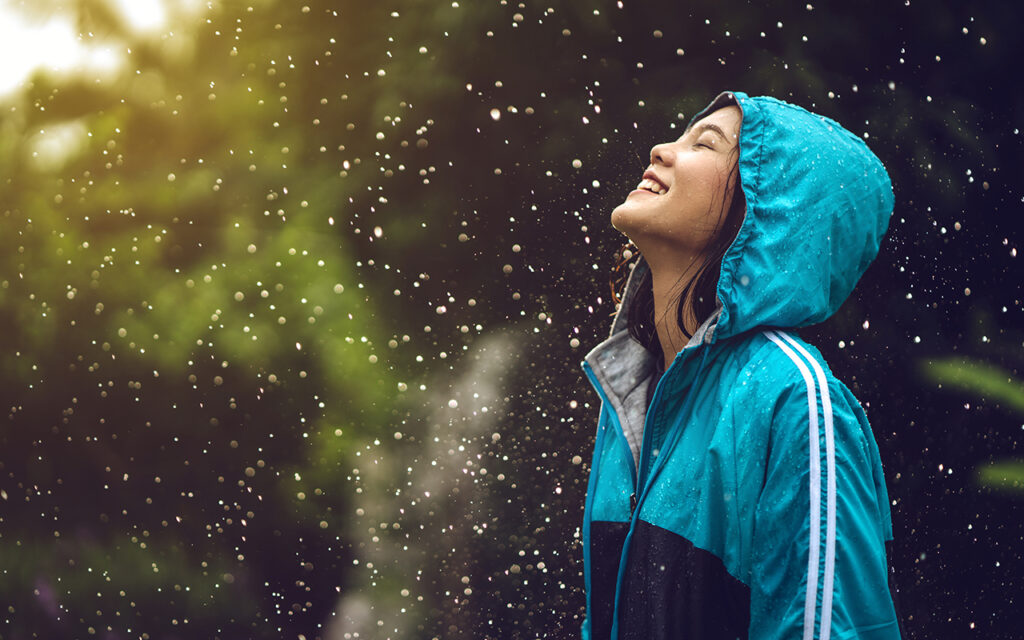
Once upon a time, rain showers might’ve been healing for our hair. However, that predates diesel emissions and other harmful pollutants that are currently contributing to the greenhouse effect.
When harmful chemicals evaporate into gasses, they become condensed and are especially potent at the start of a rain shower. Harmful elements enter our bodies regularly – through the air we breathe, our skin, and the food and drinks we enjoy.
In some instances, pollutants and toxins may wash through our hair with minimal impact. But, when you consider that porous hair tends to have lifted cuticles, that means there are more opportunities for harmful elements to break through.
Here’s more on how you can contribute to air pollution solutions.
The Effects of Acid Rain
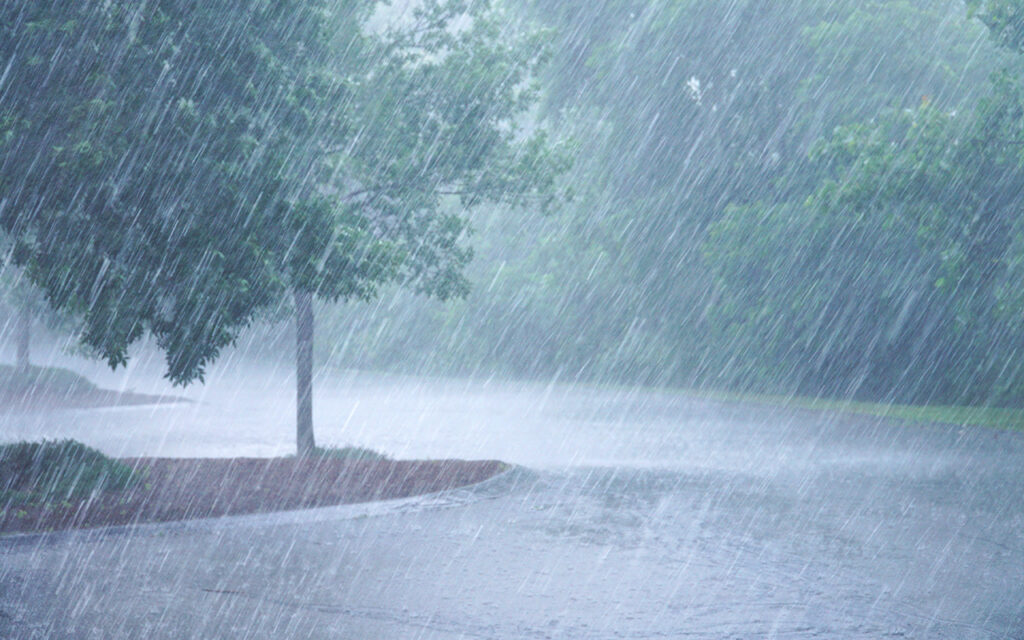
The same emissions that may be accelerating global warming also manifest in acid rain. These harmful elements convert into sulphuric acid mixed with nitric acid when met with sunlight and humidity. This is why it’s called acid rain.
When acid rain meets the hair, it can cause damage to the cuticle, making it appear dull and rough. The amount of damage at the cuticle depends on the pH of the rain.
Typically, the pH of rainwater sits at about six, which is slightly acidic. However, the lower the pH sinks, the more hazardous. Areas with high pollution may see levels as low as four or two which is dangerous to scalp and hair.
Rain Showers and Frizz
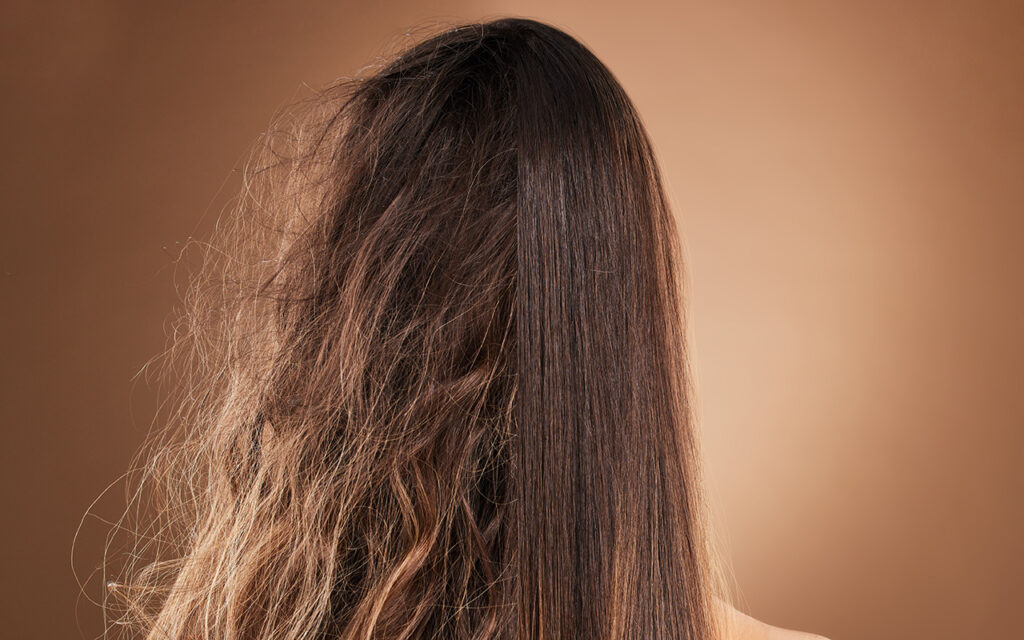
Let’s start with something that’s not necessarily bad for your hair. But, it can cause your hair to have an adverse reaction, especially if you like the look of sleek and shiny locks.
Nearly everyone is prone to frizz when rainwater – or any water – makes contact. Aging hair is particularly impacted because it tends to be more porous. As a result, the cuticles are rougher and more lifted. That means they’ll be quick to drink up the moisture and water in the air.
In response, the water will cause hydrogen bonds to form on the proteins of the hair which creates a rough look and, in the end, frizzy hair. You’ll agree these effects aren’t necessarily harmful. But, they don’t always give the most refined look.
Be sure to make regular checks of your local weather news to see if you need to pack rain gear on any given day.
Rain Showers and Flat Hair
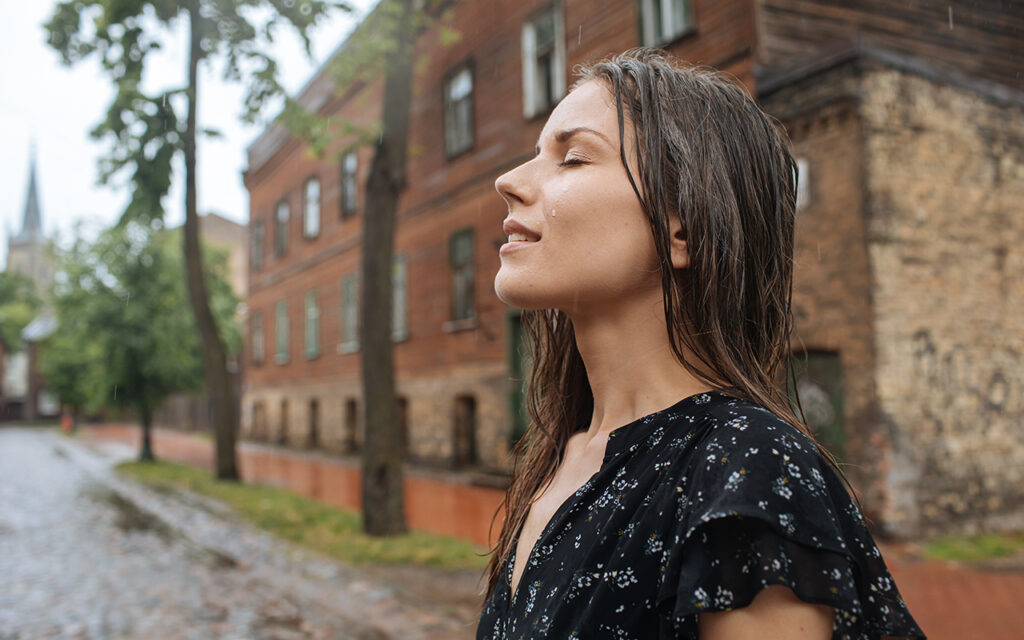
There is an upside to having porous hair. It tends to have more lift than non-porous hair. Fine, low-porous hair tends to have a lot less body.
If you’re already trying to bring some life to low-porous hair, even on a sunny day, you’re far more likely to be disappointed the moment rain water makes contact.
Like frizz, this can’t be classified as unhealthy. But, it may be disappointing, especially if you’ve spent any amount of time styling your hair.
On that note, hair products such as mousse or hair spray are more likely to allow the harmful elements of rain to stick to the shaft long after the showers have moved on.
Are All Rain Showers Bad?
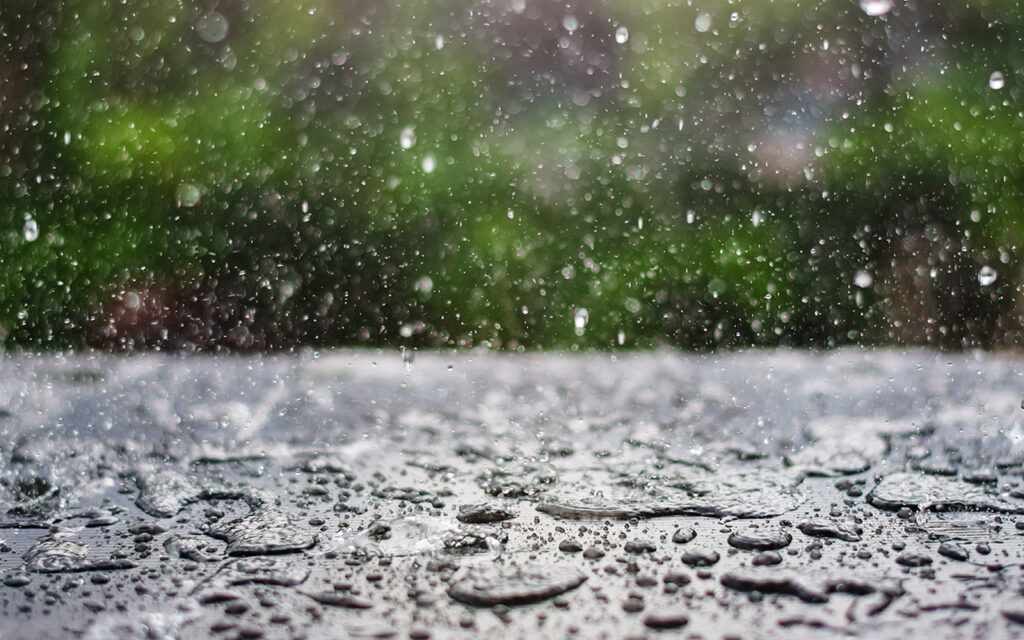
No two rain showers are the same. In certain parts of the earth, the answer to, “Is rain water clean?” is, “Yes.” Some rain showers may be quite healing.
If you’ve ever had a hankering to visit Chilé, your hair might thank you. Scientists at the universities of Texas and Chile reported that the cleanest water in the world is located in Puerto Williams, Chilé. They found that the cleanliness of the water is a result of the clean air from which the water falls.
Other counties with a similar claim to fame include Denmark, Singapore, and Iceland. Along with the clean rain water in Iceland, your hair, skin, and nails may also benefit from a dip in any number of the hot springs in Reykjavik and beyond.
Keep in mind that a rain shower doesn’t exactly come with a shower head. There’s no adjusting the water pressure and it may not evenly hit your hair, leaving you wondering if all the shampoo and conditioner rinsed out.
If you stay for an extended amount of time in any of these areas with healthy rain, you might want to consider adding in a little Vitamin C to supplement the lack of sun. And, while you’re at it, take a look at the best Vitamin D supplements for your morning routine.
How to Protect Your Hair
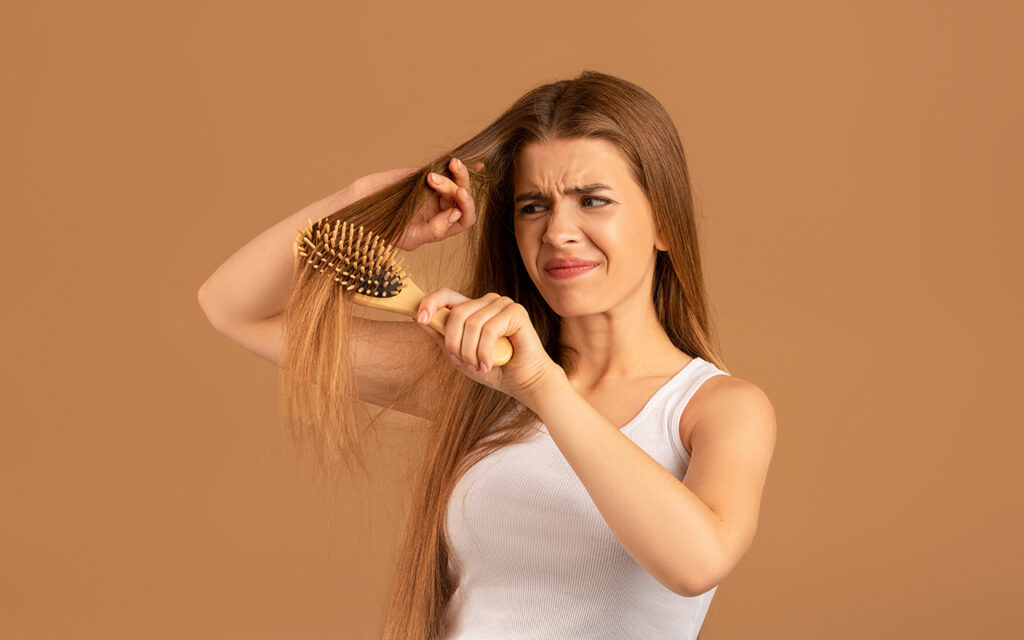
Thankfully, there are many things you can do to protect your hair from the detriments of acid rain. The first layer of protection is an umbrella, hat, or rain jacket with a hood. Pair each of these with solid rain boots, as well, to prevent yourself from slipping or soaking your socks.
The more moisture your hair has, the more it will be equipped to keep harmful toxins at bay. This is why healthy hair products like high-quality conditioners and hair oils are helpful.
With nourished hair on your mind, take a moment to consider the importance of proven skincare, as well.
Not only will conditioners and oils reduce the effects of frizz, coarse cuticles, and rough edges, they’ll also prevent some of that acidic rain from absorbing into the shaft.
If you do come in contact with rain in an environment that has poor air quality, it’s wise to wash your hair as soon as you can. Use lukewarm water and condition and treat your hair with oil again.
Frequent hair washing leads to another problem – dry hair. So, it’s a bit of a balance. Consider a leave-in conditioner in conjunction with hair oil to prevent the drying that can follow excessive washing.
The Verdict on Rain Showers and Your Hair
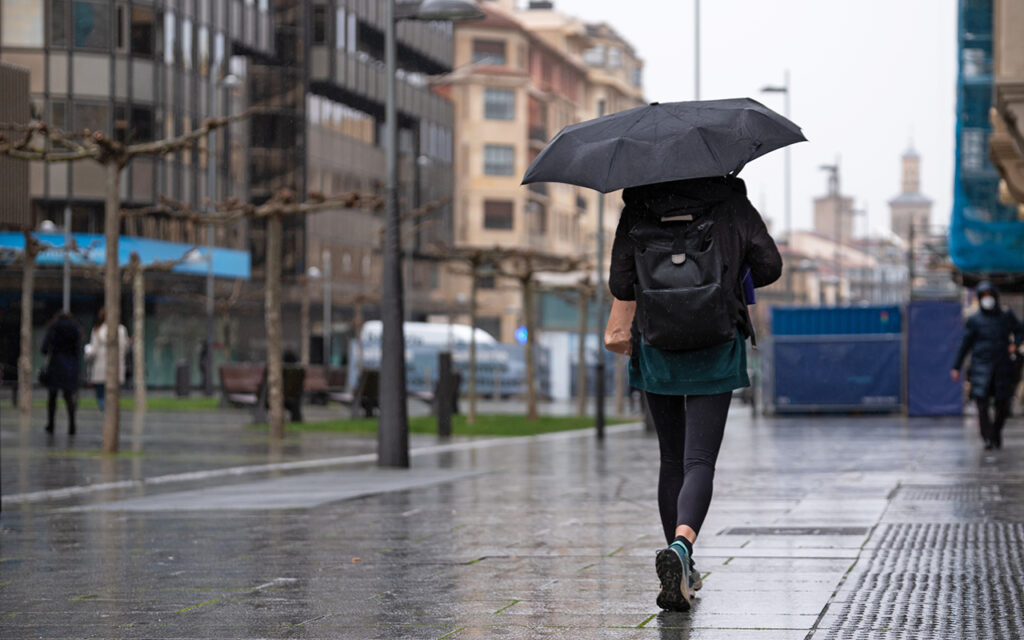
As with most things in life, the answer remains, “It depends.” Rain water isn’t the biggest thing to worry about. But, if you live in Seattle or other areas with high pollution, you might want to try to wash your hair after run-ins with the rain.
Meanwhile, other parts of the world with less pollution and natural sources of water like Chilé and Iceland might provide a nice experience and a healthy boost for your hair.